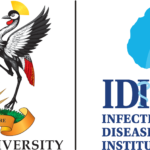General Summary
The Refrigeration and Air Conditioning Technician is a member of the Operations section under the finance and administration department He/she will be responsible for installing, maintaining, and repairing heating, ventilation, air conditioning, and refrigeration (HVAC-R) systems at all times. He/she will also oversee related works of contracted works to outside contractors – ensuring that their work is up to the required quality and standard.
Key Responsibilities
- Installation:
- Install refrigeration and air conditioning systems, components, and equipment as per specifications and blueprints.
- Set up new systems or replace existing ones, including compressors, motors, evaporators, and condensers.
- Maintenance:
- Implements comprehensive maintenance program for the refrigeration and air conditioning equipment
- Perform routine maintenance on HVAC-R systems, including cleaning coils, filters, and blowers.
- Carries out routine inspections / scheduled checks and test system performance, adjusts controls, and calibrates thermostats to maintain proper temperature and efficiency.
- Troubleshoots, installs, adjusts, modifies and repairs restricted elements of refrigeration equipment.
- Serves as the IDI liaison with refrigerators and air conditioning equipment preventive maintenance service providers and ensures they follow schedule and bill correctly.
- Provides regular notification to the Electrical engineer and all other relevant staff regarding ongoing and special maintenance projects, project priorities, material and staffing, and timeliness required.
- Repair:
- Diagnose malfunctions and repair refrigeration and air conditioning units, including electrical components, compressors, condensers, and other related parts.
- Replace defective parts and ensure all repairs comply with safety and efficiency standards.
- Troubleshooting:
- Identify issues in HVAC-R systems using diagnostic tools, gauges, and manuals.
- Resolve complex mechanical and electrical problems within refrigeration and air conditioning systems.
- Compliance and Safety:
- Adhere to safety regulations, environmental laws, and industry standards.
- Handle refrigerants following EPA standards and maintain proper records for refrigerant usage and disposal.
- Customer Service:
- Interact with clients to provide information, recommend system upgrades, and explain repair work.
- Offer guidance on system usage, maintenance tips, and energy-saving solutions.
- Documentation:
- Maintain accurate records of services performed, including work orders, parts used, and time spent on each task.
- Prepare and submit reports on equipment performance and maintenance activities.
- Report the status of equipment to the Facilities Engineer through service sheets or verbal communication to ensure proper functions and safety at all times
- Inventory
- In liaison with the Electrical Engineer, maintains an up-to-date inventory of all spare parts in detailed technical specifications
- Liaises with the Electrical Engineer for order of all requisite spare parts, materials, supplies, and tools to ensure repairs and maintenance are carried out efficiently and effectively.
- Safety
- Performs all duties as a member of the Fire Alarm Response Team
- In conjunction with Facilities Engineer, enforces safety standards
- Trains end users and operators on the safe operation and handling of equipment.
- Other Duties:
- Performs, from time to time, any reasonable request from a member of management.
- May work in various environments, including residential, commercial, and industrial settings
- Exposure to temperature extremes, noise, and hazardous materials
Academic Qualifications
- Diploma in Electrical, or Refrigeration and Air Conditioning Engineering
Person Specification
- Knowledge of maintenance trade procedures, equipment, tools and supplies commonly used to support the installation, maintenance, and repair of buildings, tools, and equipment
- Strong knowledge of refrigeration and air conditioning systems, including electrical and mechanical components.
- Proficiency in using diagnostic tools, gauges, and technical manuals.
- Good communication skills to interact effectively with clients and team members.
- Ability to work independently and manage multiple tasks efficiently.
- Knowledge of safety procedures and terminology.
- Skills in assessing conditions and standards of tools, equipment, and completed work
- Skills in letting, managing, and troubleshooting with contractors and maintenance service contracts.
- Knowledge of occupational hazards and standard health and safety practices

